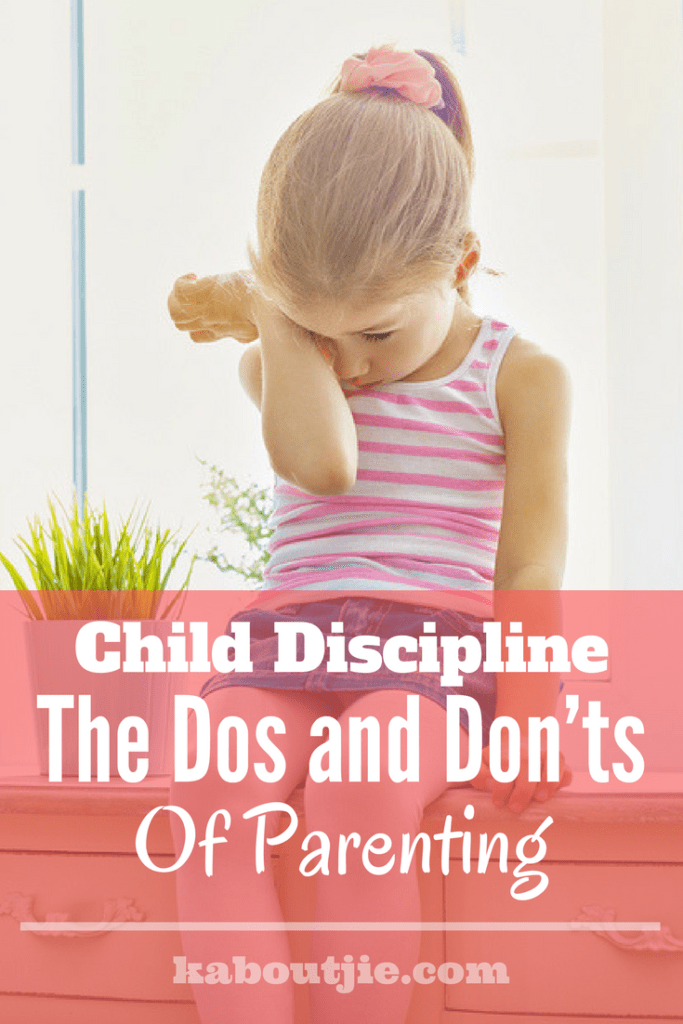Parenting is a journey filled with excitement, joy, emotions and lots of surprises. You get to learn a great deal of stuff and discover new secrets each day; it’s like you grow and develop with your children. It would be an understatement to stay that the responsibilities parents bear on their shoulders are exhausting. From compromising on their sleep and desires to fulfilling all our demands they sure do a lot.
Parents are role models for the children, but that certainly doesn’t mean that you can’t make a mistake as a parent. We human beings are susceptible to making mistakes; the chances increase when our emotions clutter our mind and decision-making abilities.
Of course, parents also tend to stress out; at times they may take it out on their children. Disciplining your child is a challenging task as it plays a primary role in forming their personality. It teaches them valuable skills such as compassion, respect & cooperation and is the foundation for good behaviour.
An essential thing to keep in mind is that disciplining doesn’t mean having to scold or punish your child. It means teaching them the ability to choose the right path, to be able to distinguish between right and wrong. There are moments when instead of focusing on instilling the right behaviours we may end up taking out our emotions and scolding or punishing. So an essential part of disciplining is controlling our feelings and setting the correct parameters. This was just one example; there are various other dos and don’ts for raising well-mannered kids. Here are a few of those golden rules that can help you out at different stages of your children’s lives:
Consistency Is Important
What we as parents need to understand is that, children don’t know how to distinguish between what is right or wrong. You need to patiently and firmly teach your child what type of behaviour is acceptable and what isn’t. For instance, there is something that annoys you, but you let it go for a while and suddenly have an outburst. Your child won’t realize why it happened and which behaviour triggered your anger, it will confuse them more. Establish rules and stand by them at all times, you can’t break these rules even if you want to.
Connect with Your Children
If your kid makes a mistake or is acting out, don’t lose your temper and stay calm. Instead of resorting to shouting, yelling or showing disappointment, try to connect with them. Hug them and try to find out the reason behind their behaviours. Your kids count on your for emotional support and love so when they are having a meltdown, console them instead of arguing. Letting your kids confide in you will improve your relationship and develop a sense of trust within your child. After they are over the phase, you can find a solution together.
Reward Good Behaviours
It is essential to praise your child when they display good behaviour. Rewards and appreciation play a significant role in enforcing positive actions. It will also boost your kid’s self-esteem, confidence and their ability to recognise what should and should not be done.
Set Clear Boundaries
You need to be very specific about the rules you set for your children. One thing to keep in mind is to be realistic. You can’t expect a toddler to act like a pre-schooler or a pre-schooler to act like an adolescent, so set age-appropriate boundaries. For instance, if your 2 year old finds throwing stuff fun, chances are they will keep doing it, so you have to choose your battles wisely. If the behaviour is harmless instead of fighting over it, just get it out of your children’s way. Instead of continually denying everything to your kid, prioritise situations and act accordingly. It will make it easy for your child to follow through and will be a lot less hectic for you.
Be The Role Model
You know what they say “practice what you preach.” It is crucial for parents as their children consider them role models. To set an example for your kids, you will have to follow the rules you set for them and if you make a mistake, accept it. There is no harm in apologising to your children. Instead, they will learn that if something goes wrong, there is nothing to be ashamed about. Similarly, if you want to teach them kindness, be polite yourself. Use words like please, thank you and praise them when they follow suit.
Don’t Yell Or Spank
Many parents today are fully aware of the consequences yelling and spanking can have on the child’s personality. Still, some people resort to these ineffective discipline methodologies. You may be frustrated, you may have had a day, and I agree that parenting is an exhausting job, yet there is no excuse for hitting your child. Research also reveals that children who are spanked or yelled at in their childhood have higher chances of being depressed and having behavioural issues. Now as a human being it is almost impossible to never shout at our kids. Since many of us barely get a few hours of quality sleep and exhaust ourselves, we do have our moments of weakness. But it is important not to be verbally abusive; you can raise your voice a bit but focus on communicating the message.
Don’t Label Your Children
There are times when your kids act out, and you react by labeling them things like naughty, rude or lazy. What you may not know is that you are damaging your child’s personality by calling them such names. They will believe the labels and it may either shatter their confidence or make them reluctant to make any improvements. Call out the wrong behavior instead, comment on their mistakes and take corrective measures.
Don’t Give Empty Threats
I have seen parents who threaten their children with warnings and consequences that even the children know they won’t be acting on. Your child may fear it the first time but since children, these days are smarter then we think, they will know that these are empty threats. It will also set a bad example for your kids so only say things to your kids that you mean to do.

Kelly Newman is a Fitness Trainer and blogger. She loves to write about everything related to fitness and diet and wants to help people adopt a healthier lifestyle. She works with the team behind Health Listed and does extensive research to provide people actionable health and nutrition information.
 Kaboutjie SA Mommy Blogs by Lynne Huysamen
Kaboutjie SA Mommy Blogs by Lynne Huysamen








We try to explain that what she did was wrong and add lots of praise when she do something right. We try to enforce the good behaviors with praise. But there do come times when she does not listen or just do something that we have repeatedly said was wrong. I think we just have to stay patient, when we lose our calm it does not help, they will just act out more.
This is such a great and informative article.
I am happy to see that I am doing certain things right but there is still room for improvement.
We’ve had lots of trouble with JD with the biting and temper tantrums a while ago but I see every day that things are improving and that it happens a lot less than before. The biting is almost non-existent. Just every now and again it will surface but then I explain to him in a calm voice that it is not nice to bite and that it hurts when you bite someone else.
He has been such a good boy lately. When we visited my Mom this past weekend, he didn’t have a single outburst, tantrum or full on cry incident.
This shows me that we are on the right track.
When JD is full on naughty, instead of telling him he is naughty, I try to rephrase my sentence. I’ll rather say: “No, my boy don’t do this. I know you are a very well behaved boy and that you don’t want to be a naughty boy.”
I praise him all the time and I’ll steal a hug as well. 🙂 He really flourishes when you praise him and he sees that whatever he did is pleasing you.
When he get’s upset about some things, we actively shift his focus to something that makes him laugh or we will say to him that if he does this then we can do something afterwards that he likes. For instance, if he brushes his teeth first, then we can go and play outside for a while. This really seems to help a lot and our home is a much calmer and tranquil place lately.
We still make mistakes, but we try to work hard at doing things the right way.
I don’t spank JD unless it’s really necessary and I’ve given a few warnings already.
The biggest struggle for me with my little one is bedtime. Same routine, day in, day out, home, vacation, no matter and it winds up being a stressful time of yelling when it should be the calmest and most serene part of the day. I find him being tired in the morning and me rushing him if we don’t have enough time and me being tired at the end of the day are both pinpoints of places of what is causing a good chunk of the problem.
I try to tell him that it’s the same thing every day and doing the little things first that needs to be done regardless make less yelling and the transitions go smoothly. There is time for getting things done then there is free time for play. I will have to take the approach also of the “questioning” in asking, “Where do your shoes and coat belong?” when I find them on the floor, bed, etc.
I have been telling him for so long and my husband, too, that she is not bad but his behaviour is not or may not be good. Sometimes he will feel some shame when he is tired or just upset with me and I hear things like, “I’m a bad boy”, etc. and I correct that right away; we all make mistakes and he has to realize he is always loved regardless. Things are tough in this world and we need to raise, self-assured kids with a heaping of confidence!
I think the thing that resonates the most with this entry is telling him what to do as well instead of telling him what not to do… sometimes little minds need conditioning and choices rather than strategy-especially first thing in the morning or last at night!
Thank you for this article. It was good to be reminded that discipline is not about punishment but about teaching and learning. I find it really challenging to be consistent as in each situation, one’s patience and circumstances vary. I found that when I just had one child, it was far easier to be patient, but with two, it is much trickier as so often the discipline that needs to take place is related to the one child’s hurting the other child, which naturally pushes my buttons!
I am not a perfect mother and I loose the plot once in a while and I am ashamed to say my boys sometimes gets the backlash of it. If I have lost my cool I apologise and explain to them why. I do not justify my actions but ask for forgiveness.
When I go out with my boys I am always given compliments on how well behaved and polite my boys are. In my mind the way they are behaving is unacceptable to me. I think for me I expect more from my boys than is really necessary. Society puts a lot of pressure on us as parents and we feel stressed and I think sometimes we take the stress out on our children. I tell my boys that I am not a perfect mother (although they tell me different) but I am perfect for them.
Sometimes we need articles like this to remind us what we doing right and encourage us to change what we need to.